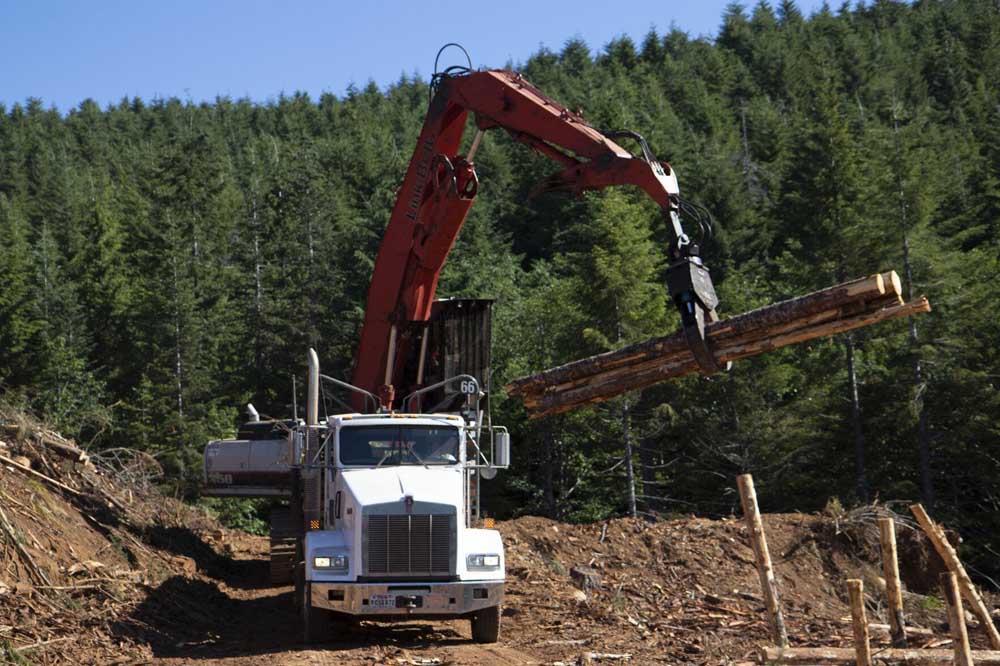Timber accountability bill spurs lawsuit fears
Published 8:00 pm Thursday, February 29, 2024

- A bill that failed in the Legislature would have allowed timber companies to sue over logging shortfalls on state forestlands.
SALEM — Timber companies and some county governments are lamenting the defeat of legislation requiring Oregon officials to set and meet logging targets on state forestlands.
Trending
Supporters say House Bill 4106 would have simply required transparency and accountability in state forest management without weakening environmental protections. Jewell School District and others in Clatsop County had backed the bill in the hopes it might help mitigate the reduction in timber harvests under a draft habitat conservation plan.
“It’s difficult to plan for the future when you don’t know what the future will look like,” said state Rep. Cyrus Javadi, R-Tillamook, the bill’s chief sponsor.
However, environmental groups warned the proposal would have spurred court challenges against state officials for falling short of timber harvest projections, undermining their ability to adjust to shifting on-the-ground circumstances.
Trending
“This bill creates a new right for the timber industry to sue the state over its timber harvest plans,” said Michael Lang, Oregon senior policy manager of the nonprofit Wild Salmon Center.
Under HB 4106, the Oregon Department of Forestry would have created an inventory of timber on state forestlands and calculated a sustainable harvest level of anticipated logging levels.
If timber production was less than the forecast, the agency would have to increase logging in future years to make up for the shortfall.
Timber companies and county governments that rely on logs or revenue from state forestlands could also seek court injunctions to enforce compliance with these harvest requirements or to challenge certain forest management rules.
“It provides a level of certainty for what has become a very fluctuating process over the years,” said Branden Pursinger, executive director of the Council of Forest Trust Land Counties, which represents counties that receive state timber revenues.
Though HB 4106 died in the House Agriculture Committee this session, proponents hope to resurrect some version of the proposal, claiming it’s not meant to subvert the Department of Forestry’s planned habitat conservation plan for protecting threatened or endangered species.
“We’re not telling the Board of Forestry how to manage lands and if necessary, we can make that even more clear,” said Heath Curtiss, vice president of legal and government affairs at Hampton Lumber. “We hope sincerely it comes before this committee next session.”
The bill’s supporters want state forest officials to provide an estimate of harvest levels, even if they’re as “devastating” as expected under the habitat conservation plan, he said.
“At least tell us how you’re going to manage the land and then let us hold you to it,” Curtiss said. “The only thing we’re trying to do is introduce a little bit of accountability.”
Environmental advocates argue the habitat conservation plan’s impacts won’t be as drastic as the timber industry claims, as the plan is likely to reduce timber harvests by 10% on state forestlands that represent a tiny fraction of Oregon’s total harvest. Clatsop County is the most impacted county in the state under the draft, with an anticipated 35% loss in revenue from timber harvests.
The logging targets and legal rights of action contemplated under HB 4106 “will really shift the way management will occur,” solely helping wealthy timber executives and their investors, said Chuck Willer, executive director of the nonprofit Coast Range Association.
“The real purpose of this bill is to service the overbuilt milling capacity in this region,” Willer said.
Opponents allege that HB 4106 would force state forest officials to justify every conservation-oriented constraint and provide timber companies with a “back door” to challenge the habitat conservation plan’s implementation.
Trygve Steen, an environmental science professor at Portland State University, said the Department of Forestry would be stuck with “guaranteed levels of logging no matter how environmental conditions may have changed.”









